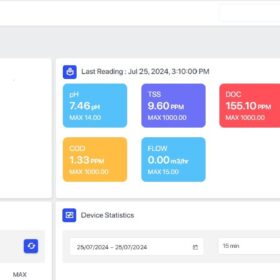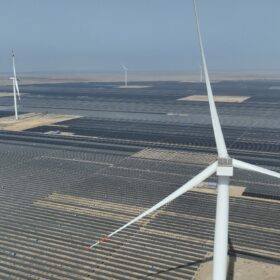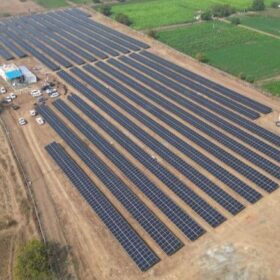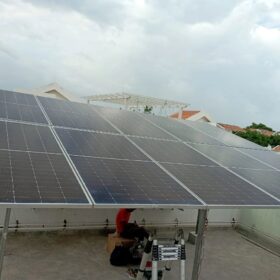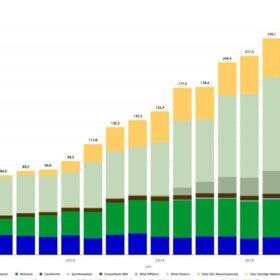AI and Data Analytics in energy operations
Artificial intelligence (AI) and Data Analytics are transforming energy operations by introducing capabilities that were once unimaginable. These technologies provide actionable insights, automate processes, and enable real-time decision-making, making energy systems smarter and more resilient.
India’s installed renewable energy capacity grows 15.84% year-on-year
The nation has reached a cumulative installed renewable energy capacity of 209.44 GW as of Dec. 31, 2024, with major contributions from solar (97.86 GW) and wind resources (48.16 GW).
India installed ‘record’ 24.5 GW of solar power capacity in CY2024
India added about 24.5 GW of new solar capacity in the twelve months ending Dec. 2024, the highest recorded capacity in any previous year.
The ease of financing in the solar sector
Innovative models that provide pay-as-you-go solar systems, peer-to-peer energy trading, and crowdfunding platforms could expand access to renewable energy for underserved communities.
Vertical rooftop PV performs better than conventional rooftop solar under the snow
A case study analysis by Norway’s Over Easy Solar has found that vertical rooftop solar panels outperform conventional rooftop PV systems during snowy months. Energy yield was up to 30% higher in the winter months in Norway, according to the company.
The shift to advanced battery technologies for a sustainable future
With the growing integration of renewable energy solutions in power grids, the demand for efficient energy storage solutions is only set to grow. Taking cognizance of the advancements in battery technology, India today stands at the cusp of a major revolution.
SJVN invites bids for residential rooftop solar installations in Arunachal Pradesh, Himachal Pradesh, and Punjab
SJVN Ltd has invited bids for supply, installation and five-year operation and maintenance of grid-connected rooftop solar PV projects in residential buildings under PM Surya Ghar: Muft Bijli Yojana in three states.
GEAPP joins ISA’s multi-donor trust fund initiative to mobilize $100 million solar finance
The Global Energy Alliance for People and Planet (GEAPP) has strengthened its partnership with International Solar Alliance (ISA) by signing ISA’s Multi-Donor Trust Fund, which aims to mobilize $100 million to fund high-impact solar energy projects.
Why timely solar project delivery matters more than ever in 2025
India’s renewable energy sector symbolizes hope—for environmental sustainability, economic growth, and global leadership. However, poor execution could derail this vision. The renewable energy industry cannot afford to repeat mistakes seen in infrastructure, where overcommitting and underdelivering have compromised credibility and delayed progress.
Germany hits 62.7% renewables in 2024 electricity mix, with solar contributing 14%
The Fraunhofer Institute for Solar Energy Systems (Fraunhofer ISE) reports that Germany generated 72.2 TWh of solar in Germany in 2024, accounting for 14% of total electricity generation.
